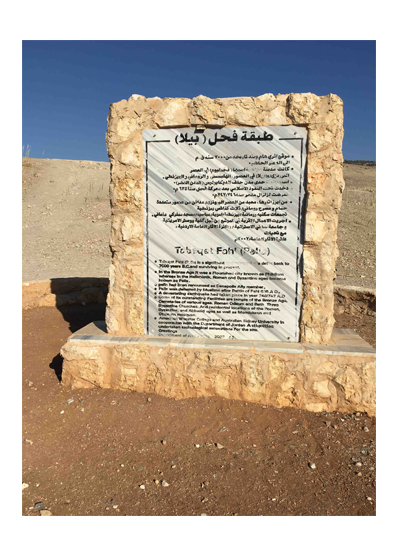One Column Page
and responsive to boot
Rome Reacts to Rebellion
by Edward E. Stevens
This article appeared in the 2022 Summer issue of Fulfilled! Magazine

In our previous article we noted that Eleazar b. Ananias was the original instigator of the rebellion, and that his lawless deeds revealed him as being the Man of Lawlessness. In this issue we will see how the actions of Eleazar and his soldiers provoked Rome’s military response to the Zealot rebellion.
On August 5, 66, the Sicarii joined forces with Eleazar’s men, which enabled the Zealot rebels to drive Agrippa’s soldiers out of the upper city, after which they looted and burned Ananias b. Nedebaeus’ house, Agrippa and Berenice’s palaces, and the archives building where the debtor records were stored. Now Eleazar’s soldiers had control of both the Temple and the lower city. Then the moderates and loyalists, including both Ananias’ and Agrippa’s soldiers, fled to the upper palace and used it as their fortress (Wars 2:425-429 [2.17.6] and Sepher Yosippon, Ch. 61).
On the next day (Aug 6, 66), Eleazar’s soldiers besieged the Tower of Antonia for two days, killing the Roman soldiers, and burning it (Wars 2:430 [2.17.7]) Then, they went to the upper palace and fought with Agrippa’s soldiers for eighteen days (See Graetz, Popular History of the Jews, Vol. 2, p. 186. cf. Wars 2:431-432 [2.17.7]).
Evidently, Manahem (son or grandson of Judas the Galilean, founder of the Zealots) returned to Jerusalem from Masada about this time and entered the city as if he was the king. He took control of the Zealot soldiers who were attacking the upper palace, thus enabling them to overpower the moderates inside (Wars 2:433-436 [2.17.8]).
The moderates then sent a message to Manahem, offering to leave the palace if they would not be killed. That offer was accepted for all the Jews and Agrippa’s soldiers, but not for the Roman soldiers. So, the Romans abandoned their camp and fled to the three towers of Herod’s palace. However, Manahem and his men caught many of them, killed them, plundered them, and set fire to their camp. And since some of the Romans had entered the towers, Manahem then besieged the towers (Wars 2:437-441 [2.17.8]).
On the next day (Aug 28, 66), the former high priest Ananias b. Nedebaeus (father of Eleazar), was caught hiding in an aqueduct, and was slain together with his brother Hezekiah by Manahem’s soldiers (Wars 2:441 [2.17.9]). This was not just a random act of violence against an insignificant citizen of Jerusalem. Ananias b. Nedebaeus was probably the most powerful ruler of the Jews at that time. He was a moderate and pro-Roman loyalist. More importantly, he was a restraining influence against his son Eleazar, as well as against the whole Zealot cause. That is why the Zealot rebels eliminated him.
Thus, Ananias was one of the first aristocratic casualties of the rebellion (Wars 2:441 [2.17.9]), which not only fulfilled Apostle Paul’s prediction about Ananias in AD 58 (“God is about to strike you” Acts 23:1-3), but also his prophecy in AD 52 which stated, “he who now restrains will do so until he is taken out of the way, and then that lawless one will be revealed” (2 Thess 2:7-8).
Paul referred to Ananias as being a lawbreaker in AD 58, so it is no surprise that his son Eleazar became an even worse lawbreaker. After Ananias was killed by Manahem, and his restraining influence on Eleazer was removed, Eleazar’s true lawless character was clearly revealed, and his lawless conduct escalated rapidly, just as Apostle Paul had predicted.
Manahem’s victory over the moderates and Agrippa’s soldiers puffed him up. He thought he had no rivals who could challenge him. But Eleazar pointed out to his soldiers and the citizens of Jerusalem that they did not gain their freedom from one tyrant (Rome), merely to hand it over to another (Manahem). So, Eleazar’s soldiers and many of the citizens attacked Manahem and his bodyguard in the temple where he was pompously parading himself in royal garments. Manahem fled to Ophla, but was quickly found and killed. Thus, Eleazar avenged his father’s death by killing Manahem, and this further consolidated the rebel forces underneath Eleazar’s control (Wars 2:442-448 [2.17.9]). Eleazar was ruthless and treacherous in all his dealings—a real tyrant who was a law unto himself, who changed the rules as he went along.
Eleazar’s men continued the siege of the Roman soldiers in the three towers until the Roman general Metilius (Gk. eparchos) offered to surrender the towers and lay down their arms in exchange for their lives. Eleazar granted the request, but then broke his promise as soon as the soldiers laid down their arms. All of the Romans were slain except Metilius, who promised to convert to Judaism. Josephus said that this breach of oath not only provoked Roman revenge, but the wrath of God also (Wars 2:449-456 [2.17.9-10]).
And that wrath did not wait long to be poured out. The day on which Eleazar killed the Romans was a Sabbath, and “on the very same day and hour” in Caesarea, the Gentile citizens rose up against the Jewish citizens and slew twenty thousand of them “in one hour’s time,” thus emptying Caesarea of its Jewish inhabitants (Wars 2:457 [2.18.1]).
That massacre in Caesarea was a turning point. It incited the entire nation of Jews to take up arms and join the war effort. They immediately formed several bands of soldiers and spread out to attack the villages of the Syrians and other cities, including Philadelphia, Sebonitis, Gerasa, Pella, Scythopolis, Gadara, Hippos, Gaulonitis, Kedasa, Ptolemais, Gaba, Caesarea, Sebaste, Askelon, Anthedon, and Gaza. It seems that no Greeks or Syrians (or Christians) were left alive in Pella after the Zealots took control of it (Wars 2:458-468 [2.18.1-3]).
In retaliation for that attack, many of the Syrian and Grecian cities rose up against their Jewish inhabitants: Askelon slew 2,500 Jews, Ptolemais slew 2,000, and Tyre, Hippos, and Gadara each slew large numbers. There was a huge slaughter of Jews (50,000) in Alexandria (Wars 2:477-498 [2.18.5-8]).
And when Vespasian, Titus, and Placidus moved their armies through Galilee, Decapolis, and Perea, they cleared out all the remaining Zealot strongholds, which would have included Pella if there were any Zealots still stationed there (Wars 4:419-438 [4.7.4-6]).
This means that Pella suffered at least two devastating attacks during the course of the war. First by the Zealots, and then later by Vespasian’s forces. If there had been any Christians in Pella when the Zealots attacked, they would have been killed. And likewise, when Placidus came through that area with his cavalry, any remaining Zealots in Pella would have been killed. Pella was left desolate. This is why so many Jewish and Christian historians reject the idea that the Judean Christians who fled to Pella were still alive there after the war, and that some of them returned to Jerusalem after the war.
Cestius Gallus (the Roman legate in Antioch of Syria) was totally aware of the rebellion and was busily preparing the Roman response. He marched the twelfth legion to Ptolemais, along with Agrippa’s troops and many auxiliaries (about 30,000 soldiers) and began the attack in Galilee (Wars 2:499-505 [2.18.9]).
After Gallus’ Galilean campaign, he regathered his troops at Caesarea, and marched through Antipatris and Lydda, killing all resistance and burning their cities. Then he camped at Gabao, which is near Beth-Horon. Most of the Jewish men from those villages were in Jerusalem for the Feast of Tabernacles (Oct 4, 66). When they heard that Cestius had just attacked some of their nearby cities, they grabbed their weapons and ran to Gabao to fight the Romans (Wars 2:515-522 [2.19.1-2]).
Cestius then advanced to Jerusalem to attack the walls, and could have easily captured it, but for reasons which are not totally clear, he withdrew his troops and headed back toward Caesarea, with the Zealot soldiers right behind them.
Cestius suffered a humiliating defeat at Beth-Horon as they attempted to retreat to Caesarea (Oct 27, 66). They lost 5,300 footmen and 380 horsemen, plus much weaponry, equipment, baggage, and supplies. The Jewish rebels went dancing and singing back to Jerusalem with all of that plunder. And they saw this victory as a sign from heaven that God was on their side, and that they would ultimately be victorious over the Romans (Wars 2.555 [2.19.9]; Life 5-6, 22-24). The false prophets used this victory to deceive the people into supporting the war effort. They never imagined that this was merely the beginning of the end.
Immediately after Cestius was defeated, “many of the most eminent of the Jews swam away from the city, as from a ship when it was going to sink” (Wars 2.556 [2.20.1]). They knew the Romans would return soon to settle the score. A few months later Vespasian and Titus brought four Roman legions to pour out God’s wrath on the Jews (1 Thess 2:16; Rev 6:16-17; 11:18), and “completely shatter” the rebellion (Dan 12:7; Mal 4:1).
Comments:
Your honest review will help others in their search for truth. If you must leave a negative review please be gracious.
Rather, speaking the truth in love, we are to grow up in every way into him who the head, into Christ . . . .
(Ephesians 4:15)
We have migrated to "Disqus" commenting software. Older comments (if any) are archived below, but any new comments on this page will be handled by Disqus. If you are not familiar with "Disqus," click here for more information. You don't need a Disqus account to post comments, however, without an account you won't be notified if someone responds to your post.
Archived Comments:
Don Gentry, September 12, 2022
Mr. Stevens:You say, "This means that Pella suffered at least two devastating attacks during the course of the war" and that therefore some historians deny a Christian flight to Pella and a return to Jerusalem 3 and a half years later.
However, from your column, I'm under the impression that both the Zealots and Vespasian sacked the city in AD 66. The flight didn't occur until after Vespasian received his commission from Nero in February of AD 67 to make war on the Judeans. Beth-Horon, in my estimation, was merely a skirmish in which the Jews routed the Romans. The war actually began early in AD 67 as Passover approached. From early 67 to the latter part of 70 is the three and a half that the war in Jerusalem lasted. Those are the three and a half years that the Romans had encompassed the city, that Jews therein perished from bloodshed, starvation, and pestilence, that Christians lived in exile in Decapolis, that the Revelator calls the tribulation.
For several months before the Christians fled Jerusalem, could Pella not have been rebuilt sufficiently enough to accommodate the exiles?
Thank you
Don Gentry
 Fulfilled
Fulfilled